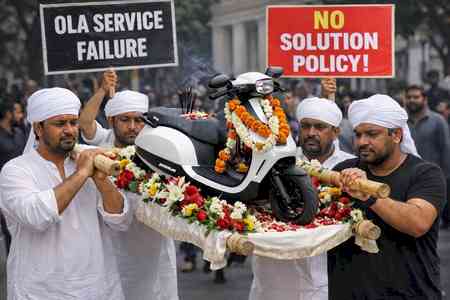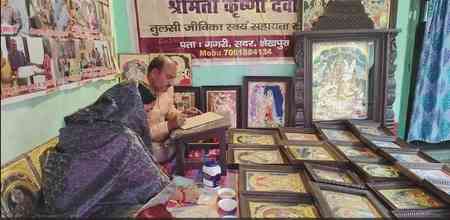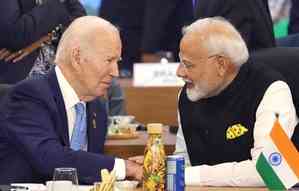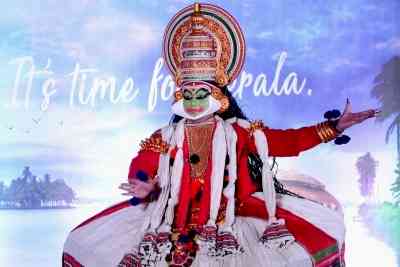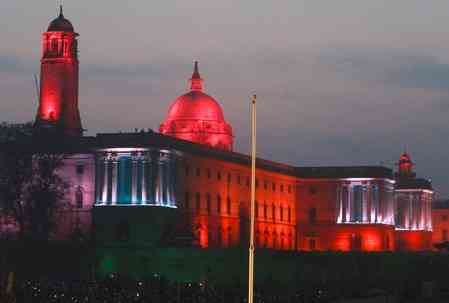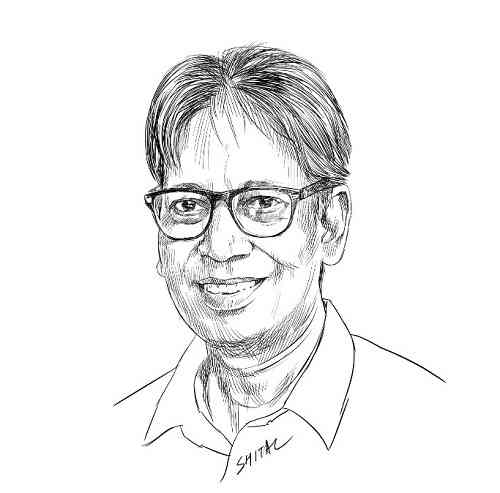Devdutt Pattanaik questions Oppenheimer's understanding of the Bhagavad Gita
Christopher Nolan's biopic 'Oppenheimer' is faring extremely well in Indian cinemas, going housefull over two weeks (in pre-booking), particularly in IMAX. However, the movie has become the target of controversy due to a scene involving J. Robert Oppenheimer having sex with Tarot while she has him read a line from the Bhagavad Gita.
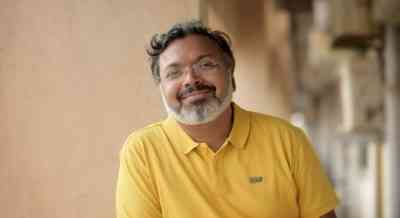
Mumbai, July 23 (IANS) Christopher Nolan's biopic 'Oppenheimer' is faring extremely well in Indian cinemas, going housefull over two weeks (in pre-booking), particularly in IMAX. However, the movie has become the target of controversy due to a scene involving J. Robert Oppenheimer having sex with Tarot while she has him read a line from the Bhagavad Gita.
This has angered certain sections of people who believe in Hinduism greatly, with mythologist and writer, Devdutt Pattanaik stating that 'Oppenheimer' got the translation of the 'I am become Death' line wrong.
During the Manhattan Project, when he witnessed the very first nuclear explosion during the Trinity Test, he had quoted a verse from Gita to describe the mushroom cloud and the massive firepower he witnessed, which was used when Arjuna gave description of Krishna upon witnessing his full divine form.
The quote reads, "If the radiance of a thousand suns were to burst into the sky, that would be like the splendor of the Mighty One… I become death, the destroyer of worlds," which he told his colleagues in Los Alamos, New Mexico in 1945. This line was when Krishna described his divine form to Arjuna, explaining to him his duties, that sometimes one must follow their dharma even if it kills them from inside.
Pattanaik went on to say that while doing research on 'Oppenheimer', he was surprised at this quote because he himself has never seen it in the Gita.
"I had never heard this line. Someone said it was chapter 11, verse 32, which really says 'kaal-asmi', which means 'I am time, destroyer of the world'. So, his translation itself is wrong. It is not 'I am death'. It is time, time is the destroyer of the world," he said.
According to him, J. Robert Oppenheimer was in a "dharam sankat (ethical dilemma) when he carried out the tests, and said that humanity has a history of interpreting religious texts differently."
He went on to add that Oppenheimer came from a Judeo-Christian background, where God is known for destroying humanity with floods and fire.
Continuing, Pattanaik said: "For a scientist, if he has used this sentence… And I have seen that video also of his, where he keeps saying, 'I am death, I am death'. It is very clearly, 'I am time'. 'Kaal' means 'time'. That is what he is saying, but of course, he gets excited because he's seeing death and destruction at a massive scale, and he's obviously seeking some kind of a spiritual background.'
"This act of killing humanity with violence is very much a big part of Biblical religions, but has nothing to do with any dharmic schools and isn't found in any of the Sanatan texts, be it Hinduism, Buddhism, Jainism or Sikhism."
He further added: "I think he was looking for some solace and found this verse very dramatic."
For those unfamiliar, J. Robert Oppenheimer who is credited as the 'Father of the atomic bomb' was deeply interested in Hinduism and classical Sanskrit, reading the Gita in original Sanskrit. While he did not turn to Hinduism as a devotee, he was nonetheless philosophically aligned with it as the Gita helped him explore what he called 'the metaphysical aspects and mysteries of the great unknown, which transcend scientific calculations.'
He also went on to call Gita 'the most beautiful philosophical song in existence' and it continued to influence him throughout his life, where he even went as far as to call it among the most important books of his life as it reshaped his thinking.
Despite his knowledge of the Gita however, the scientist's own interpretation has come under much scrutiny by not just Devdutt Pattnaik but many other researchers who have said that he only interpreted the text and its verses the way he wanted it to.


 IANS
IANS 





